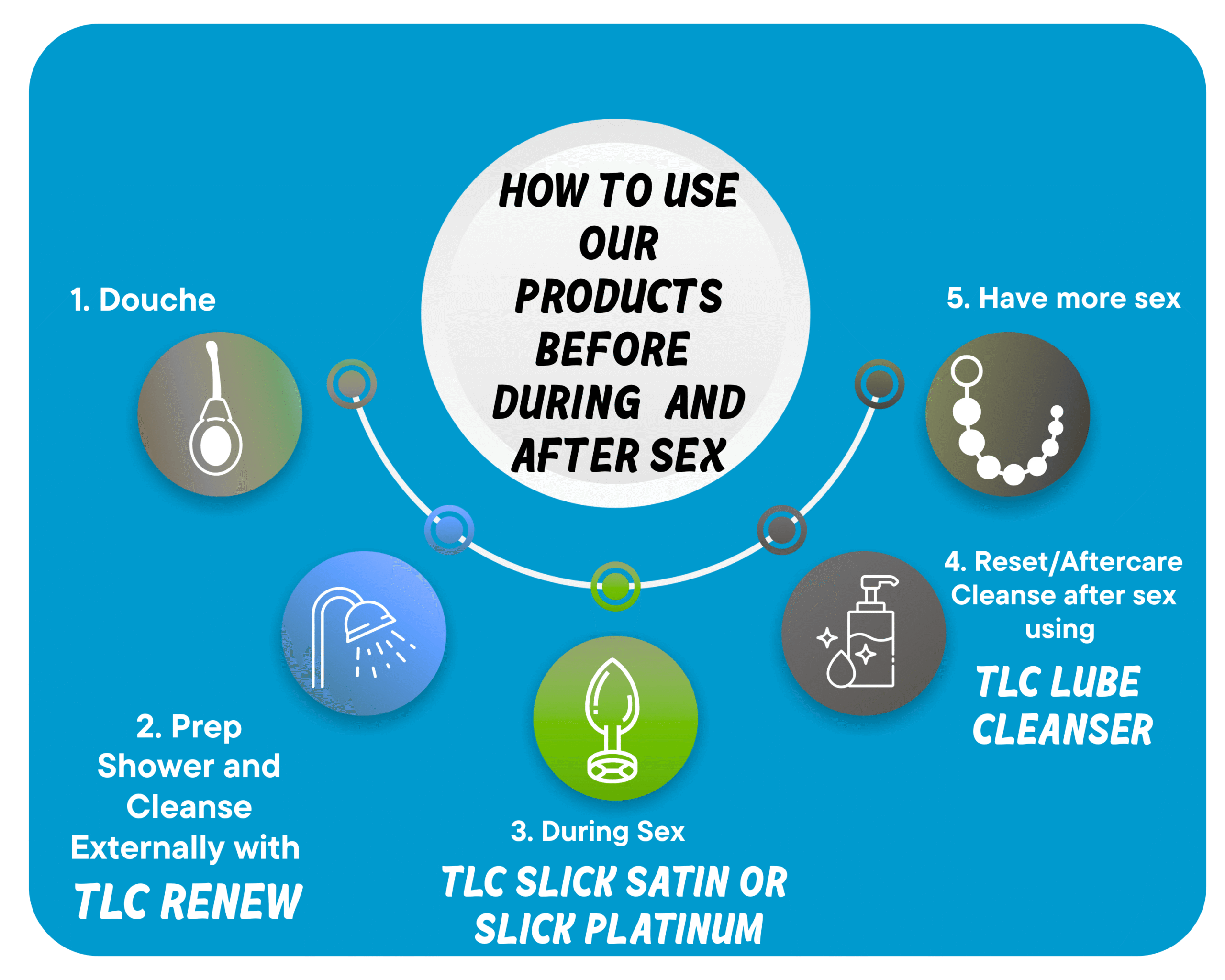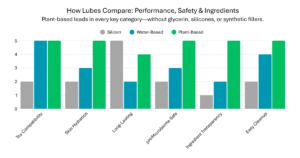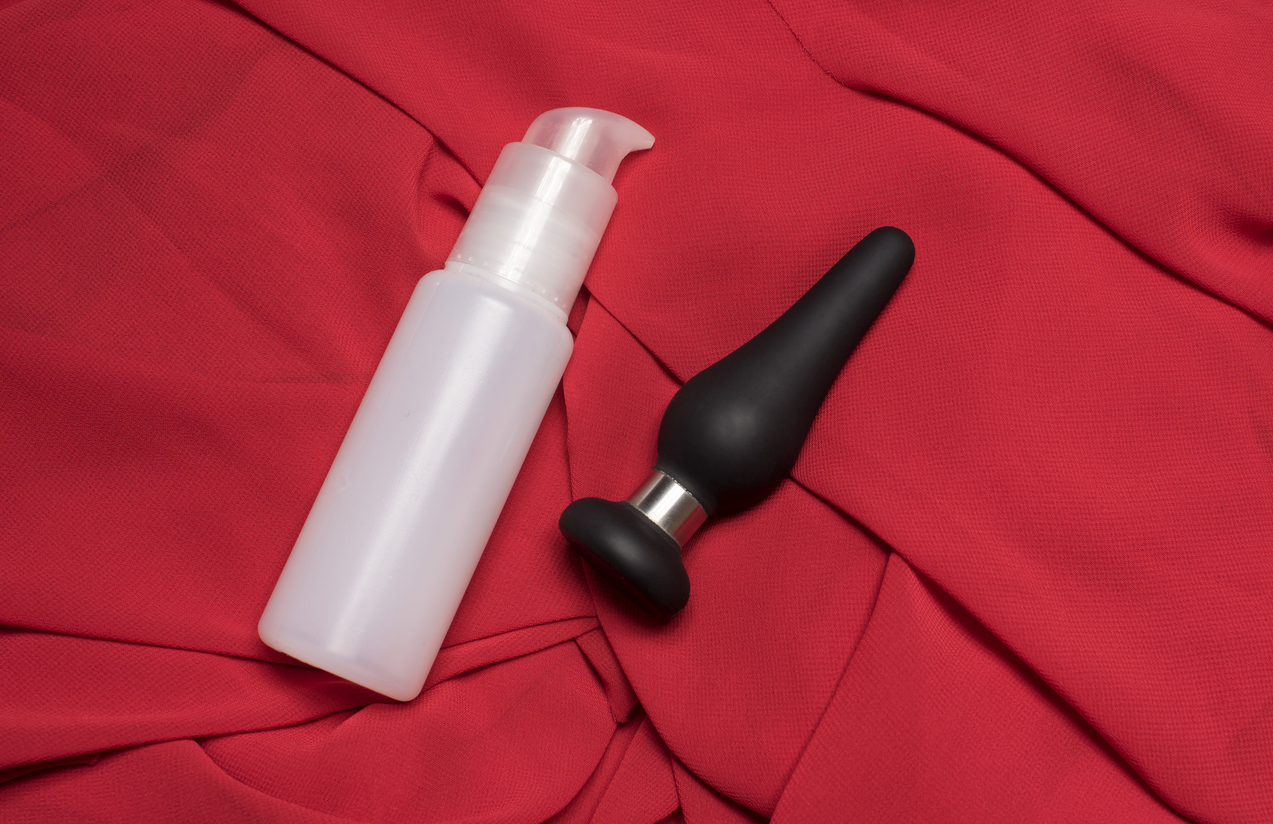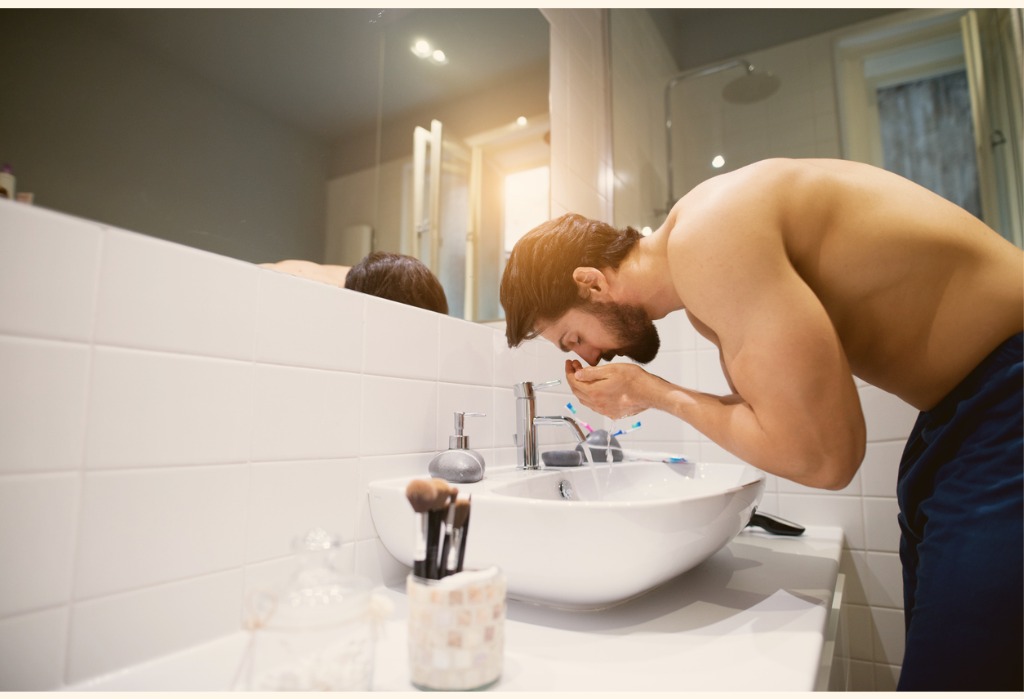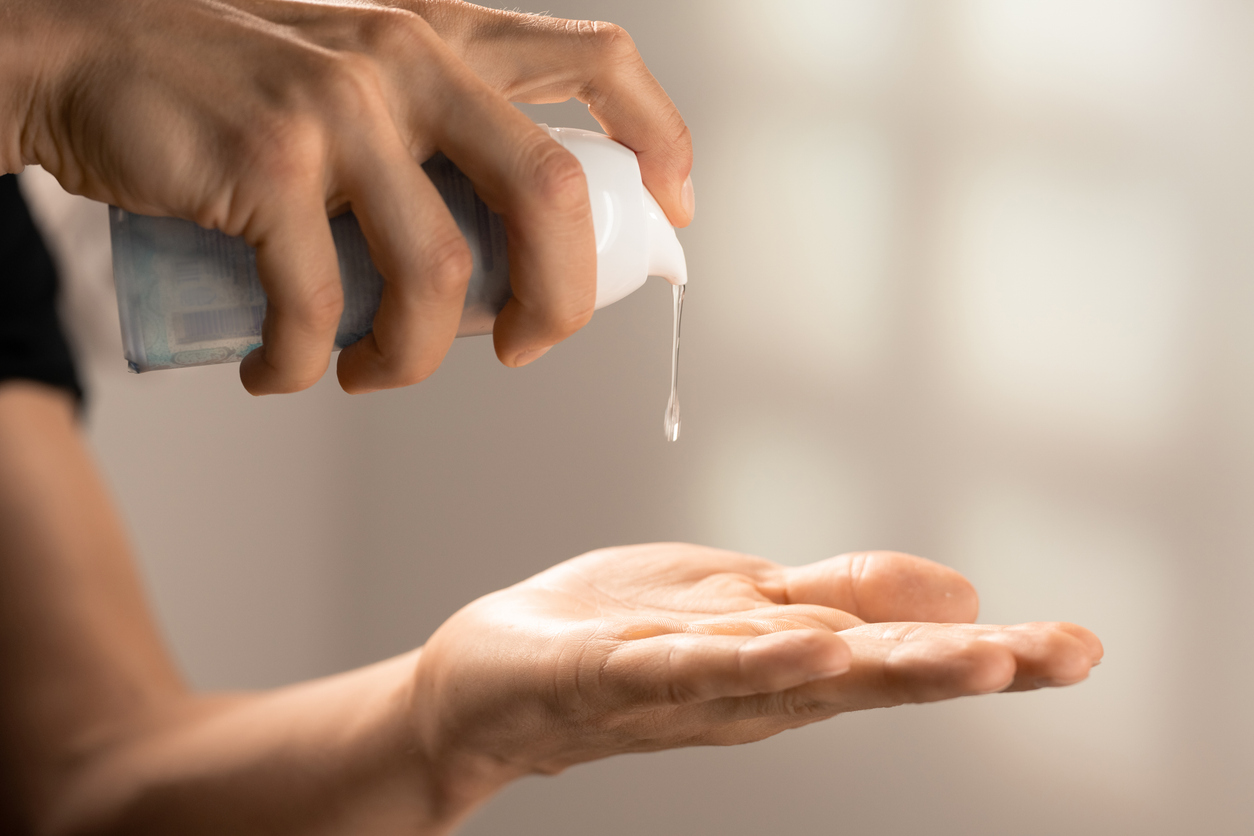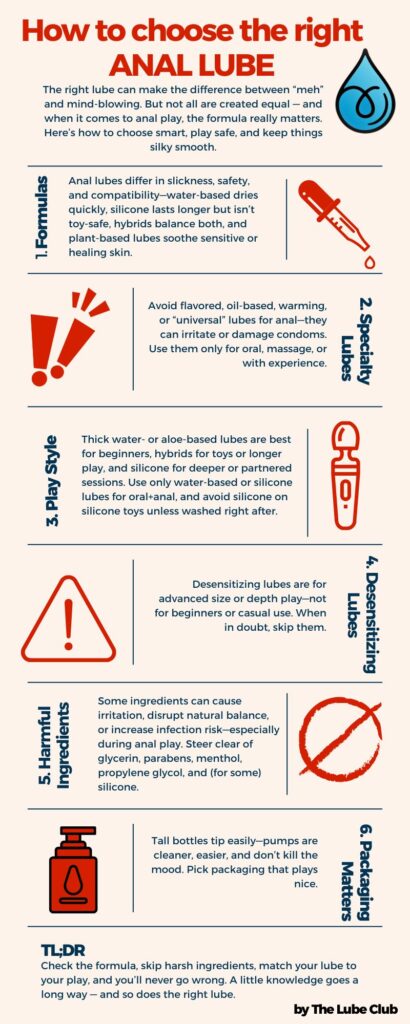
Don’t Let Your Lube Haunt You: The Real Guide to Choosing the Right Anal Lube
Have you ever had your lube vanish halfway through? Been ghosted by a bottle that dried out before things even got going? Or used something that just didn’t work for how you play?
Finding the best anal lube for men isn’t just about what’s on the shelf—it’s about what actually works for your body, your toys, and your experience level.
Questions to Ask Yourself Before Buying Lube
- Are you using this with toys, a partner, or both?
- Do you want something for quick play or long-haul sessions?
- Are you using condoms or silicone toys?
- Do you have ingredient sensitivities (glycerin, parabens, or silicone)?
- Have you used a lube that actually supported your body (hydration, healing, skin protection)?
- Are you exploring size, fisting, or deeper toy play?
- Does packaging matter to you—do you need a bottle that doesn’t tip, or a pump for easy use?
- Have you ever bought a lube because it looked good or showed up first in search—but ended up being disappointing?
Why Lube Matters More Than You Think
Lube isn’t just for dryness—it’s one of the simplest ways to make sex safer, smoother, and more enjoyable for everyone. Whether you’re exploring with a partner, playing solo, or using toys, the right lube reduces friction, prevents microtears, and supports condom safety. It enhances sensation while minimizing the risk of discomfort or injury.
According to Planned Parenthood, lube can significantly improve pleasure and reduce condom breakage—making it a smart choice for both comfort and protection.
Choosing the right lube isn’t just about pleasure—it’s also about protecting your body and enhancing how you play.
Understanding Anal Lubricant Formulas for Men
Is Water-Based Lube Good for Anal Play?
Water-based lubes are toy-safe, condom-compatible, and easy to clean. But for anal play, they dry out quickly. Many users find they need to reapply often or use a spray bottle of water to reactivate the slickness. Choose formulas free from glycerin or parabens for better anal safety.
Check out this resource from the Cleveland Clinic for a medical perspective on lube safety.
When to Use Silicone Lube for Anal (and When Not To)
Silicone lubes are ultra-slick and long-lasting—perfect for extended sessions. But they’re not compatible with silicone toys and can be hard to wash off. Also, many desensitizing lubes fall into this category, and should never be used internally or for oral play.
Are Hybrid Lubes the Best Choice for Toys and Long Sessions?
Hybrid lubes mix water and silicone, offering the benefits of both. Great for solo toy play or longer sessions. They’re usually toy-safe (check the label) and ideal for sensitive users.
Why Natural, Plant-Based Lubes Are Better for Sensitive Bodies
Natural lubes use ingredients like aloe vera, avocado oil, or jojoba oil—great for hydration, comfort, and body compatibility. They’re ideal for people with ingredient sensitivities or those looking for something that supports recovery post-play.
Still comparing products? Healthline’s roundup of the best lubes for anal sex is another solid resource.
Don’t Buy These Lubes (Unless You Know What You’re Doing)
Flavored Lubes
These often contain sugars or sugar alcohols that can irritate the rectum or throw off natural balance.
Use only for oral, and never for insertion.
Oil-Based Lubes
Can feel luxurious, but they’re not safe with latex condoms and can trap bacteria internally.
Only use these for massage, solo sessions, or advanced anal play where toy materials and safety are fully considered.
“Universal” or “Romantic” Lubes
These are often marketed to straight couples and not designed with anal play in mind.
Skip them unless you’re using externally or for very light foreplay.
Warming and Cooling Lubes
Contain menthol or capsaicin, which can be irritating for anal tissue.
Only use with caution and never for deep penetration.
How to Choose the Best Anal Lube Based on Play Style
- First-Time Anal Play: Thick water-based or aloe-based natural lube.
- Solo Toy Sessions: Hybrid or water-based lube. Avoid silicone with silicone toys.
- Partnered Anal Sex: Silicone or hybrid for max glide.
- Larger Toys or Fisting: Hybrid or silicone. Oil-based optional for experienced users.
- Oral + Anal Combo: Water-based only. Avoid flavors, silicone, or numbing agents.
- Extended Sessions: Long-lasting silicone or hybrid. Pump tops preferred.
Desensitizing vs Sensitizing Lubes — Use with Care
Desensitizing lubes use numbing agents like lidocaine. They’re helpful in some cases, but only when used correctly.
When Are They Useful?
Only when playing with size or depth beyond usual comfort. Not for oral, casual, or first-time use.
Bottom Line
These are tools. Not everyday essentials. If you’re unsure—don’t use them.
Not sure?
Skip desensitizing lubes. They’re tools for specific scenarios—not for casual or oral use. When in doubt, go natural.
Harmful Ingredients in Anal Lubes (and What to Avoid)
Ingredients to Avoid
- Glycerin
- Parabens
- Propylene glycol
- Menthol / Capsaicin / Cinnamon
- Silicone (for some)
Ingredients That Help
- Aloe vera
- Jojoba oil
- Avocado oil
- Carrageenan
- Lactic acid
Packaging Matters: Bottles That Work (and Bottles That Make a Mess)
Ever knocked over your lube bottle and soaked your sheets? You’re not alone. The right packaging matters more than you think.
Pop-Tops and Tall Bottles
Look nice, but often spill or tip when things get heated.
Pumps for the Win
Single-hand operation, no spills, and better flow control. The Lube Club bottles are designed with stability in mind.
TL;DR — Your Lube Decision Cheat Sheet
- Water-based: Great for toys & condoms. Dries fast.
- Silicone: Long-lasting. Avoid with silicone toys or oral.
- Hybrid: Balanced. Toy-safe (check labels).
- Natural: Body-safe, soothing, plant-based.
Avoid: Flavored, oil-based, “warming” or “romantic” lubes unless specifically needed.
Desensitizing: Only external use.
Packaging: Pumps are best. Skip leaky caps.
Why The Lube Club Delivers — And What to Try First
Every Lube Club product is formulated with body-safe ingredients, stable packaging, and formulas made for how you actually play.
Whether you’re a first-timer or a toy pro, The Lube Club delivers clean, body-safe, high-performance lubricants.
- Slick Satin: Aloe-based hybrid. Light, long-lasting, supports recovery.
- Slick Platinum: Premium silicone blend. Maximum endurance, zero stick.
You deserve lube that performs like your play deserves.
Explore all products from The Lube Club
